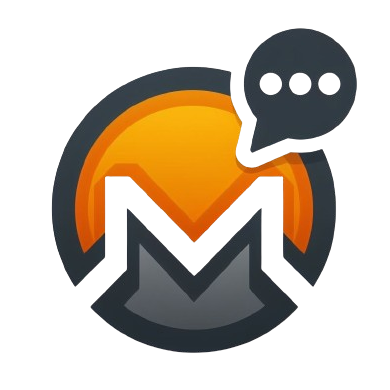A Complete SaaS for Online Tipping Solution on Monero Cryptocurrency Network (XMR).
XMRChat is a tip-for-chat application. Users can set up a page and have others send chat messages in exchange for XMR. The application is built with a focus on privacy and security.
-
Business Strategy
-
Client Side:
- Framework: Nuxt Js - Vue Js
- Language: TypeScript
-
Server Side:
- Framework: Nest Js
- Language: TypeScript
- Cache: Redis
- ORM: TypeORM
- Database: PostgreSQL
-
Infrastructure:
-
Payment Providers:
- Monero:
- Monero Project
- wallet Server : monero-lws
- Monero:
Business Strategy: Payment
The service uses a one-time payment strategy. During the deployment setup process, you will need to provide your Monero wallet address and set the service price. After clients register, they will configure their page by specifying details such as name and unique URL path. Once the service price is paid, their page is now public, and they can share their page links with their audience to receive tips.
- Docker 🐳
- Monero-lws Instance
- A Monero Wallet
- Server: Contains the backend code ( Nest JS ).
- Client: Contains the frontend code ( Nuxt JS ).
- Traefik: Contains Traefik setups
First of all you must create network that containers communicate over it.
docker network create traefikthen setup the env
cd traefik
cp .env.example .envNow change the .env with yours and run the container.
Warning
The password must be Hashed in the env and also if you add that in compose file the "$" characters must be doubled to not recognized as variable by docker engine.
docker compose up -dCreate and run a monero node. If you already have a synced node with zmq enabled skip to next step.
mkdir monero && cd monero
git clone https://github.com/monero-project/monero.gitIn last line of Dockerfile comment out CMD Command.
# CMD ["--p2p-bind ...
Clone Monero-lws repository on branch release-v0.3_0.18:
git clone -b release-v0.3_0.18 https://github.com/vtnerd/monero-lwsFrom last line of Dockerfile remove ENTRYPOINT and CMD and replace it with only ENTRYPOINT ["monero-lws-daemon"]
Final Dockerfile will be ending like this:
...
EXPOSE 8443
ENTRYPOINT ["monero-lws-daemon"]Add following docker-compose.yml to /monero directory we created on step 2.1 considering monero project ( step 2.1 ) is inside ./monero/monero folder and monero lws ( step 2.2 ) is on ./monero/monero-lws directory
services:
monero:
container_name: monero
build:
context: ./monero
restart: always
user: root
ports:
# - :80
- :18080
- :18081
- :18082
- :18083
- :18084
command:
- --p2p-bind-ip=0.0.0.0
- --p2p-bind-port=18080
- --rpc-bind-ip=0.0.0.0
- --rpc-bind-port=18081
- --non-interactive
- --rpc-ssl=disabled
- --rpc-access-control-origins=monero
- --disable-rpc-ban
- --confirm-external-bind
- --zmq-pub=tcp://0.0.0.0:18084
- --zmq-rpc-bind-port=1882
- --zmq-rpc-bind-ip=0.0.0.0
volumes:
- bitmonero:/root/.bitmonero
networks:
- traefik
lws:
depends_on:
- monero
container_name: lws
user: root
build:
context: ./monero-lws
restart: always
ports:
# - :80
- :8443
command:
- --db-path=/home/monero-lws/.bitmonero/light_wallet_server
- --daemon=tcp://monero:1882
- --sub=tcp://monero:18084
- --log-level=4
- --webhook-ssl-verification=none
- --disable-admin-auth
- --admin-rest-server=http://0.0.0.0:8443/admin
- --rest-server=http://0.0.0.0:8443/basic
- --access-control-origin=lws:8443
- --confirm-external-bind
volumes:
- monerolws:/home/monero-lws
networks:
- traefik
volumes:
bitmonero: {}
monerolws: {}
networks:
traefik:
name: traefik
external: trueRun the container :
docker compose up -dBecause the Monero daemon must sync with the network, it may take a long time. You can monitor this process by checking the logs:
docker compose logs -fAfter it is synced and ready, go next.
cd server
cp .env.example .envChange .env file with yours.
docker compose up -dcd client
cp .env.example .envChange .env file with yours.
docker compose up -dFor development you might not need monero or monero-lws if you don't make tips or create new pages ( any payments related to monero ). If you need lws instance access or can't run yours please contact us.
Add your .env file based on .env.example.
Run backend locally with docker-compose.dev.yml file
docker compose -f docker-compose.dev.yml up -dThen run the Nest project itself use node version more than 20.x.x
npm i
npm run start:dev
Add your .env based on .env.example, then run the project:
npm i
npm run dev
This project is licensed under the Apache License 2.0. For the full license text, please see the LICENSE file in the root of this repository.
A NOTICE file has been included in the root of this repository. This file contains acknowledgments and notices required by the Apache License 2.0.
Pursuant to the terms of the Apache License 2.0, the NOTICE file must be included in redistributions of this software.
